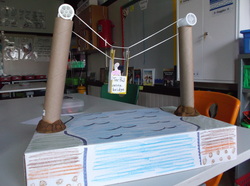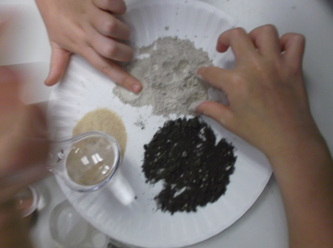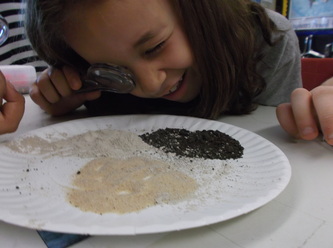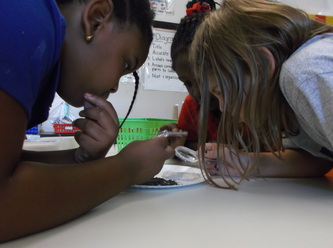
We've officially started our engineering story, Suman Crosses the Karnali River. The problem became apparent to us immediately, when Suman's grandmother, Ajee, became sick and had to cross the river during monsoon season.
Becoming experts at soil in science, second graders had a chance today to refresh their memory on three types of soil: clay, sand, and topsoil. Some of these earth materials erode quickly and others do not. Some are stronger to build a bridge into over others.
Second graders also learned a technology that is very important to the people in Nepal--the TarPul. TarPul literally translates to "Wire Bridge," and people pull themselves across the river holding onto the wires that the small cable car is suspended from. Because they are high off the ground, the people will not come in contact with the rising water during a flood. What an awesome technology!
Becoming experts at soil in science, second graders had a chance today to refresh their memory on three types of soil: clay, sand, and topsoil. Some of these earth materials erode quickly and others do not. Some are stronger to build a bridge into over others.
Second graders also learned a technology that is very important to the people in Nepal--the TarPul. TarPul literally translates to "Wire Bridge," and people pull themselves across the river holding onto the wires that the small cable car is suspended from. Because they are high off the ground, the people will not come in contact with the rising water during a flood. What an awesome technology!


